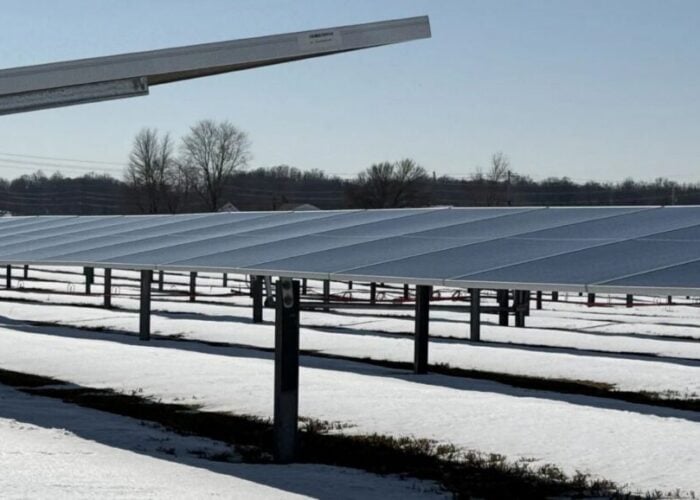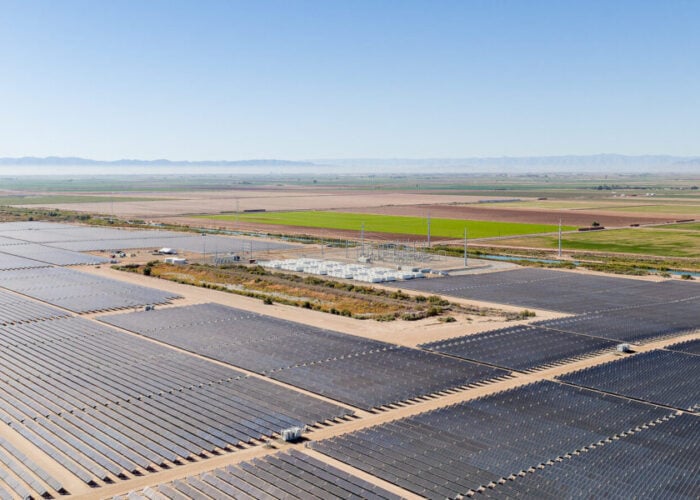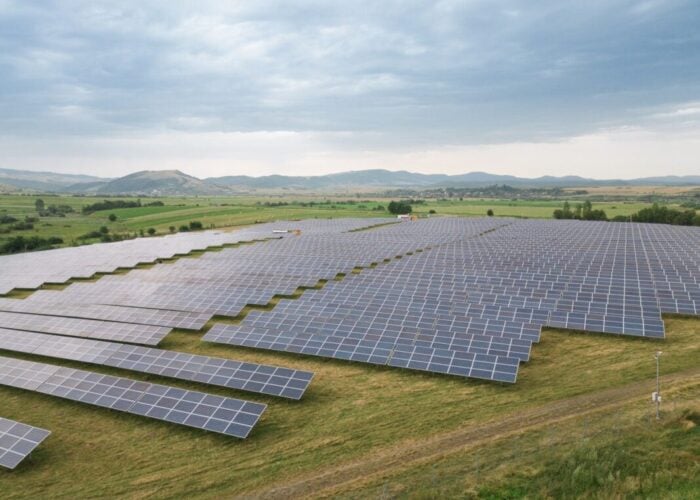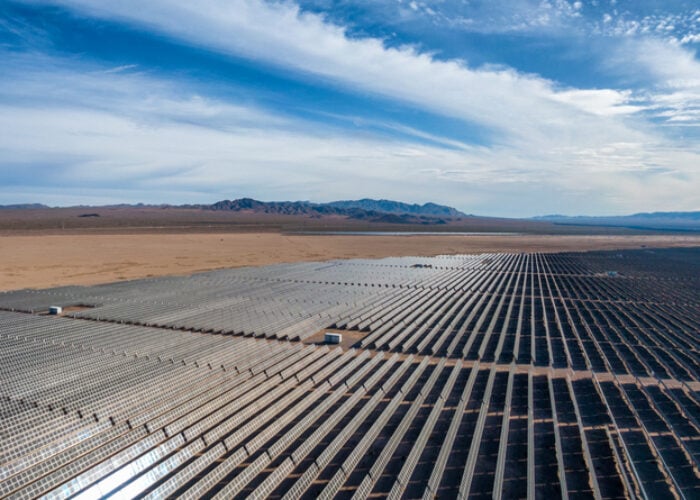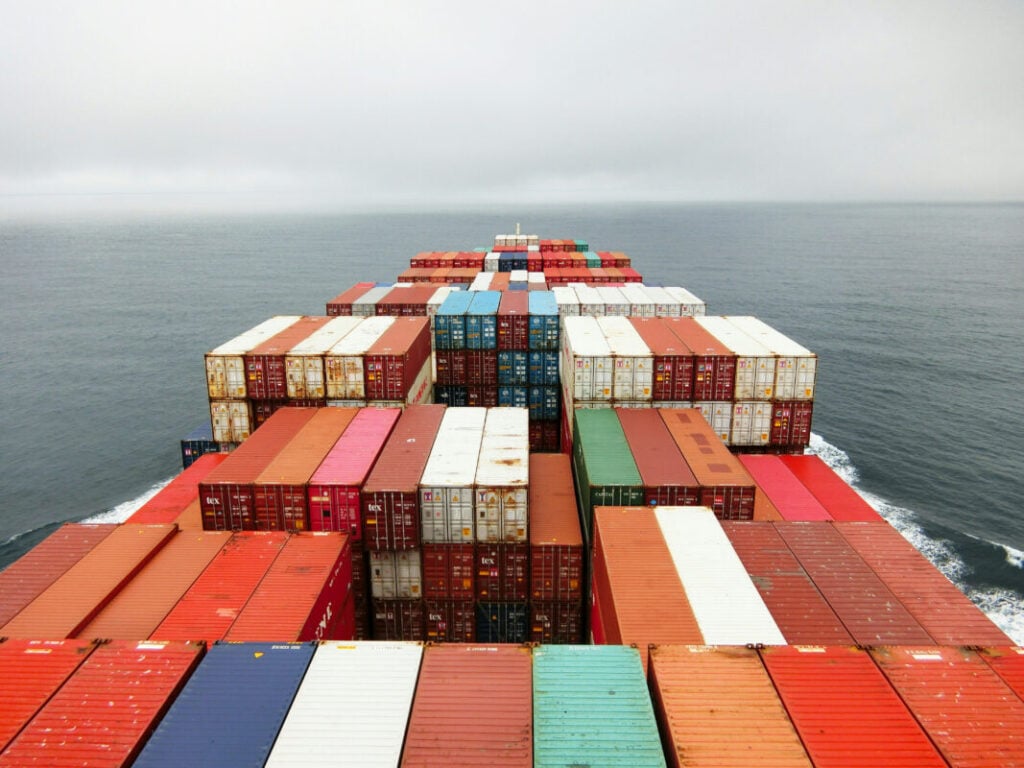
A rise in global tariffs could impact solar PV and battery energy storage system (BESS) installations in the US and EU by up to 10% by 2035.
A scenario-based analysis by business consultancy firm McKinsey said that escalating global tensions between the US, EU and China could decrease solar PV installations in the US by 9% and 7% in the EU. BESS installations in Europe could suffer a decline up to 10% if trade tensions worsen.
Try Premium for just $1
- Full premium access for the first month at only $1
- Converts to an annual rate after 30 days unless cancelled
- Cancel anytime during the trial period
Premium Benefits
- Expert industry analysis and interviews
- Digital access to PV Tech Power journal
- Exclusive event discounts
Or get the full Premium subscription right away
Or continue reading this article for free
The report’s high-impact scenario assumes 60% tariffs on all Chinese imports to the US and 20% from other countries, and a 47.7% tariff rate on Chinese solar modules and batteries entering the EU. It does not take into account other factors, most notably the slashes to renewable energy subsidies announced in the US earlier this month.
However, McKinsey said that under any tariff scenario, solar PV installations in the US and EU “could increase more than twofold,” thanks to dramatic price reductions in the technology over 2022-23.
Under its least severe tariff scenario, which assumes a situation “similar to late 2024”, the EU will reach 750GW of installed PV capacity by 2035. In the same global scenario, McKinsey forecasts 553GW of solar capacity in the US.
The “No real disruption” version of events, wherein the US imposes 20% tariffs on Chinese goods, 25% on Mexican and Canadian goods and an average 52% tariff on solar modules from Southeast Asia (via AD/CVD provisions), US installations drop to 512GW while EU figures stay up at 750GW.
McKinsey expects BESS installations in the EU, particularly, to increase more than fivefold over the next decade, largely due to the technology’s globally diverse supply chain. While China currently dominates both the solar and BESS supply chains, raw materials for batteries, “such as lithium and cobalt, are accessible across Latin America, Africa, and Australia (lithium in Chile and Argentina, cobalt in the Democratic Republic of Congo and Australia)”, the analysis said.
“Our scenarios suggest that the speed of the energy transition would likely not be drastically altered, at least in the European Union, by introducing tariffs,” the article continued. “Tariffs add uncertainty to the clean energy landscape. In the broadest sense, our scenario analysis indicates that adoption of clean-energy technologies will likely take longer and cost more the longer tariffs last and the higher they are.”
Global tensions
The momentum of the global transition to renewable energy has taken hits in recent times. Donald Trump’s election brought anti-renewables sentiment into the White House, and his government’s moves against the industry goes against the grain of most of the rich world.
A 2024 report from consultancy DNV warned that geopolitical shocks could be headwinds for the global energy transition. Even as renewables’ share in power generation continues to reach record levels and grow faster than any other energy technologies, financial shocks and the threat of military conflict threaten momentum.
The report said economic shocks can shake investor confidence and turn public and political opinion away from renewables, even as many argue that renewables represent greater security and long-term savings.
It also said that trade tensions would put greater stress on supply chains, as big picture politics moves broadly away from globalism and liberalism towards greater protectionist and nationalist tendencies. Specifically, the report said “Diversifying from China too rapidly risks a sharp increase in supply chain and production costs, a duplication of innovation effort, and a slower transition.”


